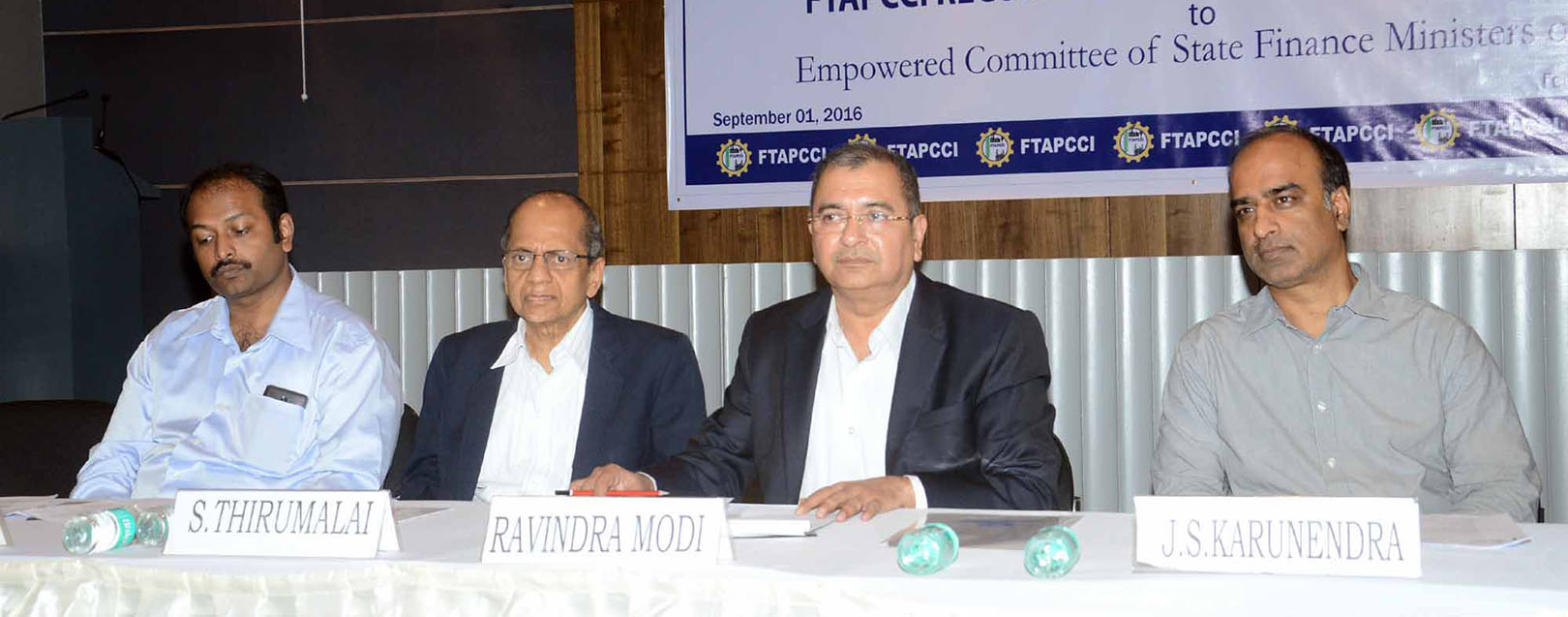
FTAPCCI: 63 suggestions to Telangana, AP on GST law
Sharath Chowdary
After the Central government passed the Goods and Services Tax (GST) constitutional amendment bill, several states including Telangana have cleared the bill. Industries and businesses eagerly await the implementation of GST. Needless to say, it would be a challenge for the Govt to ensure there is successful implementation of the bill, needed to create borderless territories for businesses in India.
Though the GST is advantageous to the industry, there are many things that yet to be addressed by the government. The Federation of Telangana and Andhra Pradesh Chambers of Commerce and Industry (FTAPCCI) is making way to address those aspects with regard to GST, the chamber President Ravindra Modi told The Dollar Business Bureau.
The GST law is going to be implemented soon and the chamber has given 63 suggestions to Telangana and Andhra Pradesh governments along with the empowered committee of state Finance Minister on GST. Many businesses and businessmen are not clear about issues related to GST law and FTAPCCI has recommended a set of aspects which need to be clarified.
"The GST will be controlled by the Central and state governments. So we recommend to have a single control and there should be a rotating method. The government should extend the deemed input tax credit to the food processing industry. Subsidy in fertilizer industry should be excluded from the purview of GST. Tax on tax is a problem for the construction sector. The goods which are transformed for free of cost have also been asked to pay tax which has to be changed," FTAPCCI suggested.
Speaking about the chamber’s recommendations related to trade, Modi said that much of the inputs used in the manufacture of fertilisers are imported. Therefore the Counter Veiling Duty (CVD) and Special Additional Duty (SAD) that are levied on imports along with concessional basic customs duty should be exempted for inputs used in the manufacture of fertilisers.
The supplies to special economic zones (SEZs) should be treated as ‘zero-rated supplies’ equivalent to exports. Else, a Unique Identification Number (UIN), as mentioned in the Model GST Law, has to be extended to SEZs too, he suggested.
There is a need to see that the working capital requirement does not render the operations of EoU’s such as tea, coffee, and other plantation crops, uncompetitive for exports. They should be brought under a UIN mechanism so that a refund could be affected without much delay.
The FTAPCCI has already submitted the recommendations to the Union government on the business module of registration, payment, return, and refund.


 to success.
to success.